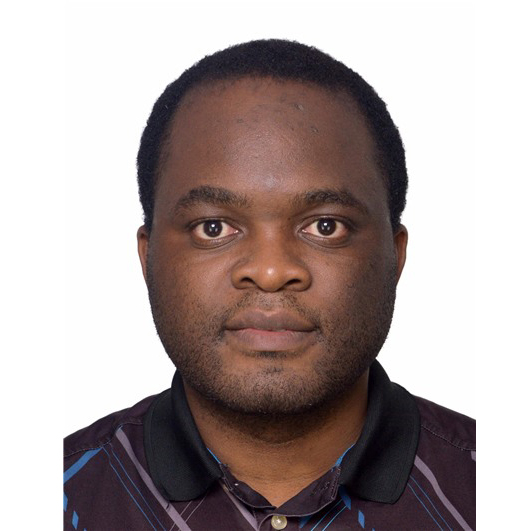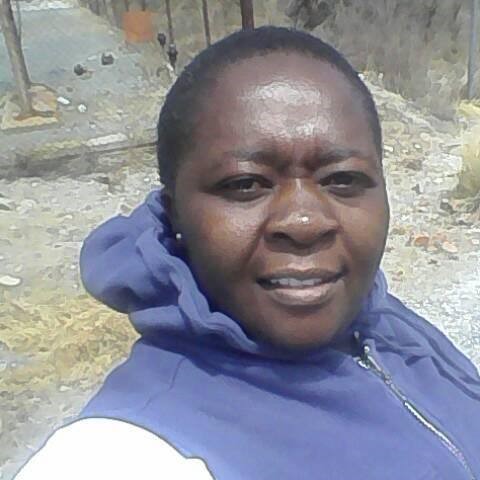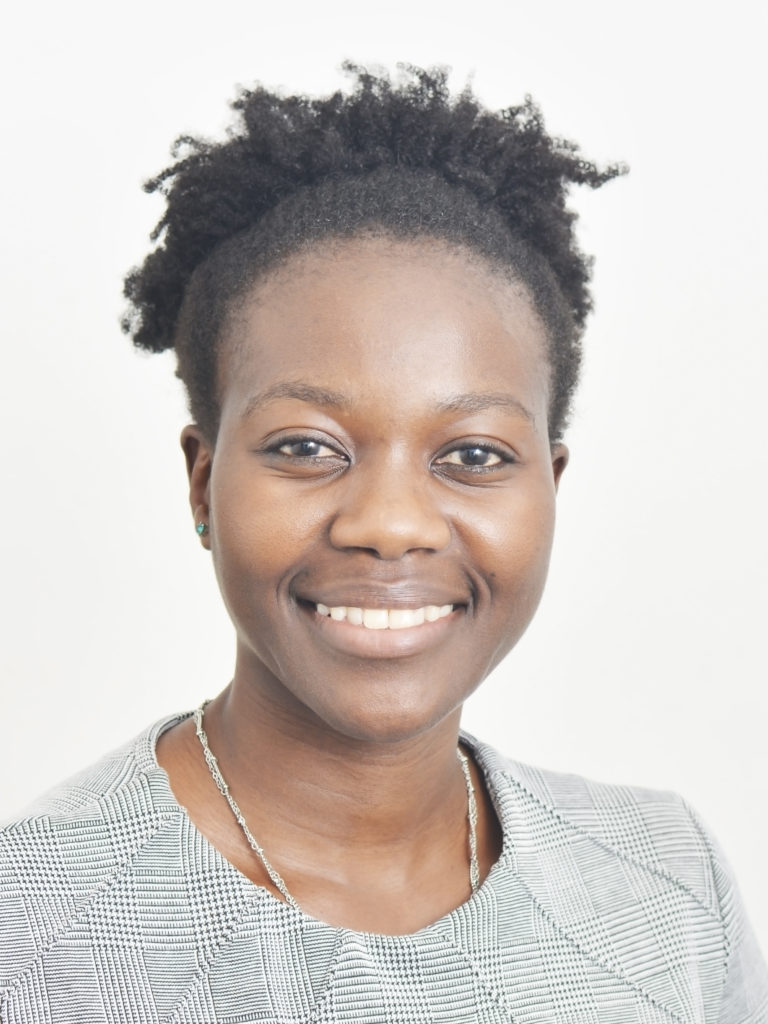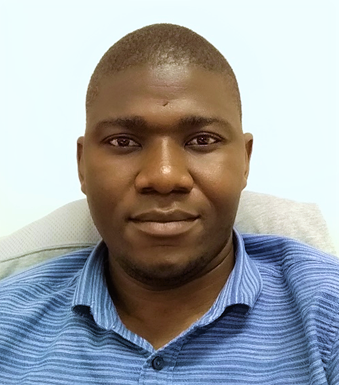The Executive Committee is the governing board of the Zimbabwe Young Academy of Sciences. It comprises of the President, the Vice President, the Secretary-General, the Treasurer, and two Committee Members. The members of the Presiding Committee are elected by the General Assembly of the Zimbabwe Young Academy of Sciences.
President

Edmond Sanganyado received his B.Sc. at the National University of Science and Technology, Zimbabwe (2008) and his PhD at the University of California Riverside, USA (2016). From 2017-2019, he was a Zhujiang Postdoctoral Fellow at Shantou University, China.
Edmond is currently an associate professor at Shantou University in the Institute of Marine Science. He has conducted multidisciplinary research in environmental chemistry and toxicology focusing on marine microbial ecology, biogeochemistry, marine mammalian ecotoxicology, aquatic pollution, and bioremediation. Edmond has published more than 30 research papers in international peer-reviewed journals.
He is a recipient of numerous national and international awards and fellowships such as the Fulbright Fellowship, Zhujiang Postdoctoral Fellowship, American Chemical Society AGRO, and International Union of Pure and Applied Chemistry’s Periodic Table of The Younger Chemists Award. He is a Fellow of the Zimbabwean Young Academy of Sciences. In 2018, Edmond was appointed as a section editor for Scientific African where he saved until 2020. He was subsequently appointed as an academic editor for PLoS ONE the same year. Edmond is the lead editor of the volume Chiral Organic Pollutants recently published by Taylor and Francis.
Vice President

Annabel Banda did her Bachelors honours degree in Biological Sciences at University of Zimbabwe (2006-2010). She also did her Master of Science in Tropical Entomology at the University of Zimbabwe (2011-2013). Currently, she is doing her Doctor of Philosophy at the Chinhoyi University of Technology. Her doctorate studies look at the ecological host-carrier association, prevalence and local community awareness of plague disease in a semi-arid tropical savanna ecosystem of Zimbabwe. The doctorate studies focus on determining the diversity of rodents and fleas and rodent-flea association in a semi-arid tropical system, i.e., Nkayi and Umzingwane district, Zimbabwe; establishing the prevalence of Y. pestis among captured rodents in Nkayi and Umzingwane districts and assessing the awareness and practices of local communities on zoonotic disease management in Nkayi and Umzingwane districts, Zimbabwe. One of the study outcomes has since been published, ‘Banda, A., Gandiwa, E., Muboko, N. and Muposhi, V.K. (2019). An assessment of diversity and plague bacteria (Yersinia pestis) prevalence among rodents in Nkayi and Umzingwane districts, Zimbabwe. In Research Council of Zimbabwe, 12th Zimbabwe International Research Symposium Book of Papers Presented 13-14 February 2019. Pp 201-108’. She was awarded an OKP scholarship for a course in GIS and remote sensing. She is a reviewer in Scientific African journal.
Annabel is a lecturer at Gwanda State University and her research interest are in medical entomology, however with great interest in wider biological research. To date, she has been presented in two symposia, Bio festival and Rays Heritage and SDG youth symposium. During these symposiums, she has been contributing to the ecological standpoint of plague disease.
Annabel has mentored several young high school girls in partaking science-related subjects and degrees during and after being a Biology High school teacher for 5 years (2014-2019). During her teaching profession, she used to facilitate Maths and Science Umzingwane district program at the Umzingwane education offices. During her reign, high schools participated in quiz competitions quiz and went camping at Falcon college. Currently, there are three girls at Universities whom she mentored pursuing science degrees from her rural Swazi High school in Matabeleland South.
Secretary-General

Margaret Siyamwaya completed a Bachelor of Pharmacy degree in 2012 from the University of KwaZulu Natal, Durban, South Africa. She then obtained her PhD (Pharmacy) degree in 2017 from the Wits Advanced Drug Delivery Platform, University of the Witwatersrand, Johannesburg, South Africa. The focus of her doctoral research included biomaterials and 3D manufacturing of cost-effective antiretroviral fixed-dose combinations, thus addressed the challenge of combining drugs belonging to different biopharmaceutical classes. During her PhD study, she received competitive scholarships namely, the South African National Research Foundation Innovation and Scarce Skills Doctoral Scholarship and University of the Witwatersrand Postgraduate Merit Award. Research outputs included a patent, peer-reviewed scientific publications as well as invited conference presentations.
Margaret is currently working as a Lecturer at the University of Zimbabwe and research interests include pharmaceutical innovation and implementation of advanced pharmaceutical manufacturing techniques in developing countries. To date, she has held three seminars tailored to assess Pharmacists’ perceptions of emerging pharmaceutical and medical technologies in a low-income setting. In 2019, she was awarded the Novartis Next Generation Scientist Fellowship thereby allowing her to gain pharmaceutical industry research and development experience as an Intern at Novartis Pharmaceuticals in Switzerland.
Margaret is keen on empowering other female scientists to pursue higher degrees and science-related careers. With that goal in mind, she has mentored 4 groups of 15 early High School girls interested in science through the Goethe-Institut, Johannesburg ‘I AM Science’ project. She is also enthusiastic about effective public engagement as demonstrated by a top 10 ranking in the 2016 Famelab South Africa, a public engagement competition for ‘3- minute scientists’.
Treasurer

Charles Teta is a Postdoctoral Research Fellow at the University of Cape Town under the Future Water Institute. Before joining the University of Cape Town, he was a Postdoctoral Fellow at Rhodes University in the Department of Ichthyology and Fisheries Sciences.
Charles has a BSc Honors degree in Applied Biology and Biochemistry and a Ph.D. in Environmental Toxicology from the National University of Science and Technology (NUST). Before his Ph.D., he worked as a Research Fellow at NUST. He is a member of the Water Institute of Southern Africa (WISA), and a council member for the Society of Environmental Toxicology and Chemistry (SETAC) Africa Region.
Charles is passionate about research that focuses on the interlink between human activities and environmental sustainability. His research interests encompass environmental pollution, environmental toxicology, & environmental health. Some of his past research focused on heavy metal pollution from urban areas, landfills, and mine tailings, as well as the effects of pollutants of emerging concern, including endocrine-disrupting chemicals and pharmaceuticals. He also researched on aquaculture by focusing on aquatic health and developing reliable biochemical methods for aquatic health assessment.
Charles has received several awards. He received a Rhodes University Postdoctoral Fellowship Award, a book prize for best student in the third year of his BSc studies, a Cold Storage Company award for best graduating Honors research. He is a fellow of the Zimbabwe Young Academy of Sciences.
Outside academia, Charles has consulted in several developmental projects.
Committee Members
James Cole
Coming soon
Benjamin Chimukangara
Coming soon

 The goal of science is to bring a change in our knowledge of fundamentals that can improve society. Our key objective at ZIMYAS is to faciltate cutting edge research that can transform the quality of life among Zimbabweans.
The goal of science is to bring a change in our knowledge of fundamentals that can improve society. Our key objective at ZIMYAS is to faciltate cutting edge research that can transform the quality of life among Zimbabweans. Development the scientific capacity of the researcher is pivotal in fostering research excellence and good scientific practices. The key aim of ZIMYAS is to improve the research environments for scientists in Zimbabwean research institutions.
Development the scientific capacity of the researcher is pivotal in fostering research excellence and good scientific practices. The key aim of ZIMYAS is to improve the research environments for scientists in Zimbabwean research institutions. The SDGs can be attained through promotion of STEM in disadvantaged populations. The goal of ZIMYAS is to facilitate the attainment of SDGs through science education in communities. ZIMYAS conducts outreach meetings on science education.
The SDGs can be attained through promotion of STEM in disadvantaged populations. The goal of ZIMYAS is to facilitate the attainment of SDGs through science education in communities. ZIMYAS conducts outreach meetings on science education.